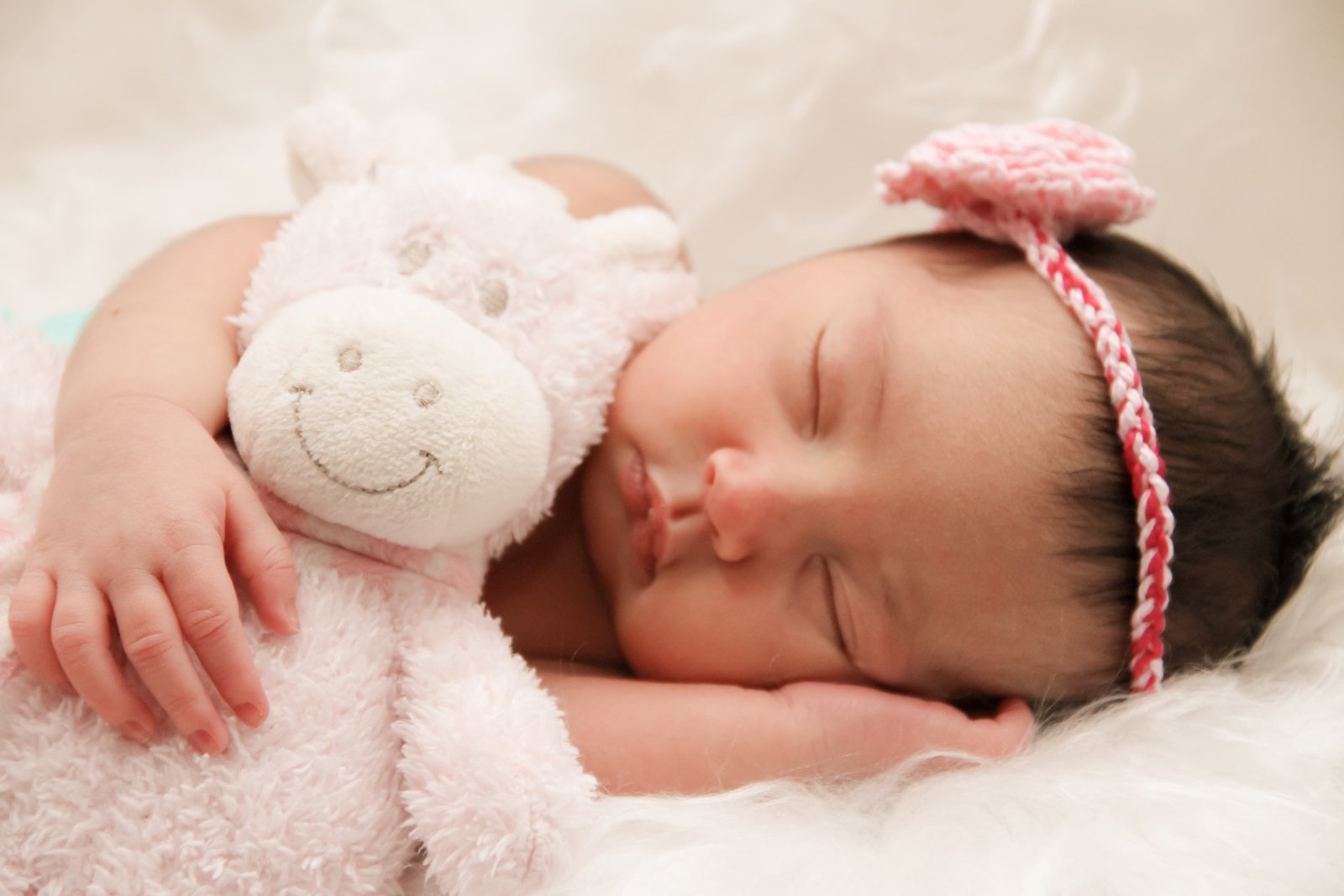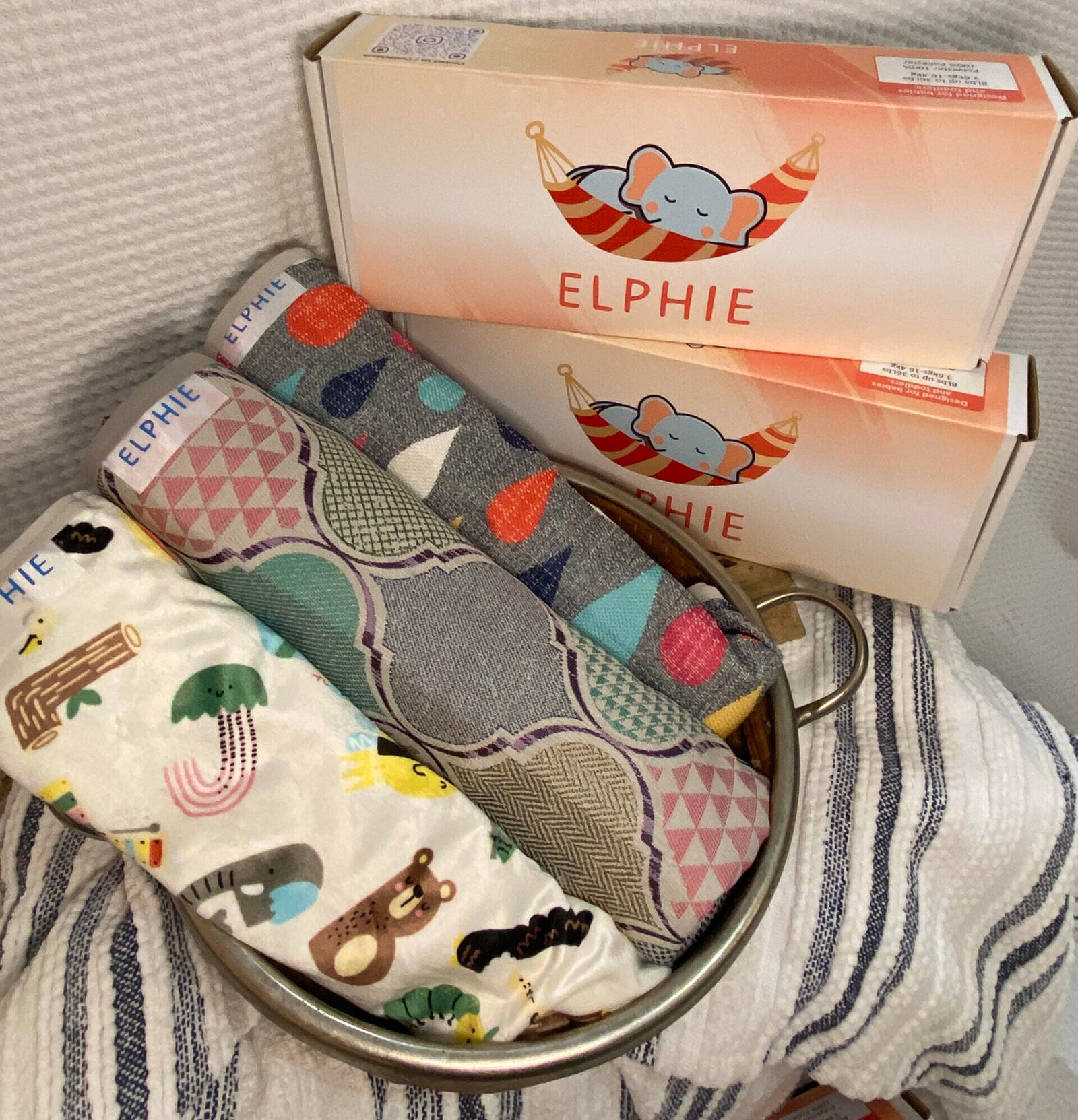
Newborn Care: A Comprehensive Guide

An Introduction
Newborn care is a crucial aspect of parenting, and it begins from the moment your baby enters the world. Providing the best care for your newborn involves a range of considerations, from feeding and sleep routines to hygiene and safety practices. As new parents, it’s natural to have questions and seek guidance on how to ensure your baby’s health and well-being during these early stages of life. In this comprehensive guide, we’ll explore the fundamental aspects of newborn care, offering valuable insights and practical tips to help you navigate this exciting yet challenging journey of parenthood. Whether you’re expecting your first child or looking to refresh your knowledge, this guide is designed to provide you with the information and confidence you need to give your baby the best possible start in life.

1. Preparing for Your Newborn
The anticipation of welcoming a newborn into your home is an incredibly special time, filled with excitement and preparations. One of the foremost considerations is creating a safe environment where your little one can thrive. This means identifying and addressing potential hazards, such as sharp corners, electrical outlets, and unstable furniture. Installing safety gates and cabinet locks can add an extra layer of protection.
Equipping yourself with essential baby gear is also paramount. A comfortable crib, a reliable car seat, a versatile stroller, and a well-organized changing table are essential items that will make your daily routines smoother. Prioritize safety and quality when selecting these items to ensure your baby’s well-being.
As you embark on this journey, stocking up on supplies is another essential task. Diapers, wipes, baby formula or breastfeeding accessories, and a wardrobe of baby clothes are daily necessities. Don’t overlook baby toiletries like gentle shampoo and baby wash. Having an ample supply of these essentials at your fingertips will make caring for your newborn a more seamless and enjoyable experience. In the midst of all these preparations, remember to cherish the moments of anticipation and excitement as you prepare to welcome your little one into your loving home.
2. Feeding Your Newborn
Feeding your newborn is one of the most important aspects of newborn care, and it plays a crucial role in their growth and development. Whether you choose breastfeeding or formula feeding, understanding the basics is essential.
Breastfeeding Basics: Breast milk is often considered the gold standard for infant nutrition. It provides essential nutrients, antibodies, and promotes bonding between mother and baby. To establish successful breastfeeding, ensure a comfortable and quiet environment. Position your baby correctly to latch on effectively, and maintain a consistent feeding schedule.

Formula Feeding Guidelines: If you opt for formula feeding, it’s essential to choose a high-quality formula that meets your baby’s nutritional needs. Follow the manufacturer’s instructions for preparation and sterilization. Always use clean bottles and nipples to prevent any potential infections. Formula feeding provides a convenient alternative, allowing multiple caregivers to share in the feeding duties.
Feeding Schedules and Frequency: In the early weeks, newborns typically feed every 2-3 hours, which equates to about 8-12 times a day. Feeding cues, such as rooting or smacking lips, indicate your baby’s hunger. As your baby grows, the time between feeds may lengthen. Pay attention to your baby’s hunger cues rather than adhering strictly to a schedule.
It’s important to consult with your healthcare provider for guidance on feeding your newborn, as every baby is unique and may have specific needs. Whether you choose breastfeeding, formula feeding, or a combination of both, the most crucial aspect is ensuring that your baby receives proper nutrition and grows healthily.
3. Sleep Patterns and Schedules
Understanding your newborn’s sleep patterns and establishing a healthy sleep routine are vital components of newborn care. Here’s what you need to know:
Understanding Newborn Sleep: Newborns sleep a lot—up to 16 to 17 hours a day during the first few months of life. However, their sleep is often fragmented into short naps. It’s essential to recognize the signs of tiredness, such as rubbing their eyes or becoming fussy, and create a suitable sleep environment.
Safe Sleep Practices: To reduce the risk of sudden infant death syndrome (SIDS), it’s crucial to follow safe sleep guidelines. Always place your baby on their back to sleep, use a firm and flat sleep surface, and keep the sleep area free of soft bedding, toys, or bumper pads. Make sure the room is at a comfortable temperature and consider using a pacifier during naps and bedtime.
Creating a Sleep Routine: Establishing a consistent sleep routine can help your newborn differentiate between daytime and nighttime sleep. Start by creating a calming bedtime routine, such as bathing, feeding, and reading a short story. Keep the room dimly lit and minimize stimulation during nighttime feeds. Over time, your baby will learn to associate these cues with sleep.
Remember that every baby is unique, and their sleep needs may vary. Be patient and flexible as you navigate your baby’s sleep patterns. As they grow, you can gradually work towards longer stretches of sleep during the night.
Prioritizing safe sleep practices and fostering healthy sleep routines from the beginning will contribute to better sleep for your baby and, consequently, a more peaceful and well-rested household for everyone.
4. Diapering and Hygiene
Proper diapering and maintaining good hygiene are essential components of newborn care that ensure your baby remains comfortable, happy, and healthy. Below, we delve into the details of these crucial aspects of caring for your newborn.
Diaper Changing 101: Diaper changes become a routine part of your daily life as a new parent. To make the process smooth and efficient, start by preparing a designated changing area with all the necessary supplies within arm’s reach.

When it’s time for a diaper change, gently lay your baby on their back on the changing mat. Be sure to secure them so that they can’t roll off. Open the soiled diaper, taking care not to pull it away too quickly to avoid any mess. Use baby wipes or a soft, damp cloth to cleanse your baby’s bottom, ensuring you wipe from front to back for girls to prevent any potential infections. For boys, it’s essential to cover them with a cloth or another diaper during the change to prevent surprise sprays!
After cleaning, apply a thin layer of diaper cream if needed, especially if your baby has any redness or signs of diaper rash. To put on the fresh diaper, lift your baby’s legs gently and slide it under their bottom. Fasten the diaper snugly but not too tight to allow for comfortable movement.
Remember always to wash your hands thoroughly before and after each diaper change. This practice is essential to maintain hygiene and prevent the spread of germs.
Umbilical Cord Care: In the first few weeks of life, your newborn will still have their umbilical cord stump attached. While it may look unusual, it’s essential to keep it clean and dry to avoid infection. Ensure that the diaper’s top is folded down to expose the stump and let it air out. Avoid submerging your baby in water until the stump naturally falls off, which typically happens within the first few weeks.
Be vigilant for any signs of infection around the umbilical cord, such as redness, discharge, or a foul odor. If you notice any of these symptoms, contact your pediatrician for guidance on how to manage it.
Baby Bathing Tips: Newborns don’t require daily baths; in fact, two to three times a week is usually sufficient. When it’s bath time, ensure you gather everything you need beforehand, including a mild, fragrance-free baby soap and lukewarm water. Make sure the room is comfortably warm to prevent your baby from getting chilled during the bath.
While bathing your baby, always start with their face and then move down their body. Use a soft washcloth or sponge to gently clean their skin. Pay special attention to the folds and creases in their skin, such as the neck, armpits, and diaper area, as these areas can trap moisture and become irritated if not cleaned properly.
After the bath, gently pat your baby’s skin dry with a soft towel, taking care to be thorough yet gentle, especially in sensitive areas like the umbilical cord stump. If your baby’s skin is prone to dryness, you can apply a fragrance-free baby moisturizer to keep it soft and hydrated.
Remember that overbathing your newborn can lead to dryness and skin issues, so aim for a gentle and minimal approach in the early weeks.
Maintaining proper diapering and hygiene practices is not only crucial for your baby’s physical well-being but also provides valuable opportunities for bonding and interaction between you and your little one. These routines, while seemingly routine, are the building blocks of early parenthood and help establish a foundation of trust and care between you and your newborn.
When it comes to diapering on the go, Elphie can be your ideal solution. Its portability and foldable design make it convenient for maintaining proper hygiene even when you’re away from home. With Elphie, you can ensure your baby’s comfort and health no matter where you are. Your baby will stay healthy, and you’ll have peace of mind, knowing that Elphie has got your back, ensuring proper diaper changes on the go.
5. Common Newborn Health Concerns
Caring for a newborn involves addressing various health concerns that may arise during the early days and weeks of their life. While most newborns are healthy and robust, it’s essential for parents to be aware of common health issues that can affect infants and know how to respond. Below, we discuss some typical newborn health concerns:
Jaundice: Jaundice is a common condition in newborns that occurs when there is an excess of bilirubin, a yellow pigment, in the blood. It often presents as yellowing of the skin and the whites of the eyes. Jaundice typically appears a few days after birth and is usually harmless, but in some cases, high levels of bilirubin can be a concern. To manage jaundice, doctors may recommend phototherapy, where the baby is exposed to special lights, or other treatments. Monitoring your baby’s skin color and consulting with your healthcare provider are essential if you suspect jaundice.
Colic: Colic is a term used to describe excessive, frequent crying in an otherwise healthy baby. It’s a frustrating and distressing experience for both parents and the baby. Colic often starts around the second or third week of life and usually resolves by the time the baby is three to four months old. While the exact cause of colic is not well understood, it’s essential to provide comfort to your baby during colic episodes. Techniques like swaddling, gentle rocking, or using pacifiers can sometimes help soothe a colicky baby. Remember that colic is temporary, and it’s crucial for parents to seek support and rest during this challenging phase.
Diaper Rash and Skin Care: Diaper rashes are a common concern for parents, but with the right knowledge and care, you can take steps to prevent them and keep your baby comfortable. Diaper rash occurs when the skin in the diaper area becomes irritated due to prolonged exposure to moisture and waste. To prevent diaper rash, it’s crucial to change your baby’s diaper frequently, ensure thorough cleaning during diaper changes, and use a diaper cream or ointment as a protective barrier. Letting your baby go without a diaper for short periods can also help their skin breathe and recover.
Maintaining your baby’s skin health is essential, not only for preventing diaper rash but for overall comfort. Use mild, fragrance-free baby products, and be gentle when cleaning or patting dry after baths.
While these common newborn health concerns can be challenging, it’s essential to remember that most babies outgrow them with time and proper care. If you ever have concerns about your baby’s health, don’t hesitate to reach out to your pediatrician for guidance and support.
When you’re on the go, Elphie can provide a convenient solution for addressing diaper rash concerns. Its portable design ensures you have a clean, comfortable changing surface for your baby, reducing the risk of skin irritations. Elphie’s focus on your baby’s health and well-being ensures that you can maintain proper diapering and hygiene practices no matter where you are, promoting your baby’s comfort and happiness.
6. Bonding and Communication with Your Newborn
Building a strong bond with your newborn is a precious and essential part of parenting. It lays the foundation for a trusting and loving relationship that will last a lifetime. Effective communication and bonding can be nurtured through various simple yet meaningful ways:

Skin-to-Skin Contact: One of the most beautiful and natural ways to bond with your newborn is through skin-to-skin contact. This practice involves holding your baby directly against your bare chest. It has numerous benefits, including regulating your baby’s body temperature, stabilizing their heart rate, and promoting breastfeeding. Skin-to-skin contact fosters feelings of security and comfort for your baby, strengthening the emotional connection between you.
Reading Your Baby’s Cues: Babies communicate primarily through nonverbal cues, such as facial expressions, body movements, and sounds. Learning to interpret your baby’s signals is crucial for understanding their needs and providing appropriate care. For example, when your baby makes eye contact or smiles, it’s a sign of engagement and happiness. On the other hand, crying can indicate hunger, discomfort, or tiredness. Being attentive and responsive to your baby’s cues enhances your ability to meet their needs promptly, building trust and emotional security.
Talking and Singing to Your Newborn: Engaging in conversations and singing to your baby, even from the earliest days, is an excellent way to stimulate their development and create a strong bond. Babies are drawn to the sound of their parents’ voices and find comfort in hearing familiar sounds. Talking to your baby, describing your daily activities, or singing lullabies can be soothing and enjoyable for both you and your little one. It also lays the foundation for language development and encourages your baby to respond with coos, gurgles, and eventually, their first words.
Effective bonding and communication with your newborn contribute to their overall well-being and emotional security. These practices not only create a loving connection but also promote healthy development and a sense of trust in the world around them.
As you navigate the joys and challenges of parenthood, remember that Elphie can be your helpful companion. With its portable design, Elphie allows you to maintain close physical contact with your baby, fostering the bond between you during diaper changes. Its convenient features ensure that you can focus on bonding and communication while providing essential care for your little one.

Welcome to our 'Newborn Care: A Comprehensive Guide'!
We understand that caring for your newborn is a rewarding yet challenging journey. That’s why we’re excited to introduce you to Elphie, the ultimate companion for modern parents. Elphie is more than just a portable diaper-changing station; it’s a game-changer in simplifying parenthood. With its innovative design, Elphie ensures you have a clean and comfortable space for diaper changes anytime, anywhere. Say goodbye to the stress of searching for suitable changing tables in public places or struggling with makeshift setups. Elphie is here to make your life easier and your baby happier. Explore our guide to discover more about newborn care, and stay tuned to learn how Elphie can revolutionize your parenting experience!
Elphie, where effortless diaper changes on the go begin
Step into a world of innovation designed to enhance comfort and convenience for parents and caregivers. Explore Elphie, where your car becomes the perfect space for stress-free baby care.
Ready to Discover the Convenience of Elphie for Yourself?
Ready to step into a world where diaper changes are no longer a source of stress? Elphie is here to redefine your parenting experience. Say hello to convenience, say hello to peace of mind, say hello to Elphie – the ultimate solution for on-the-go diapering.
Get Elphie
